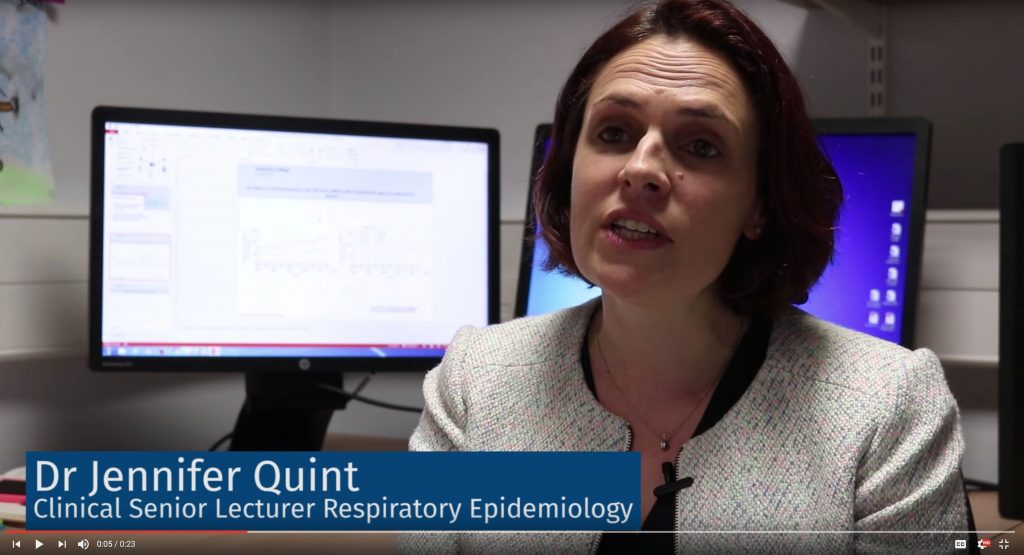Imperial/WHO CC Alumni reunion in Riyadh
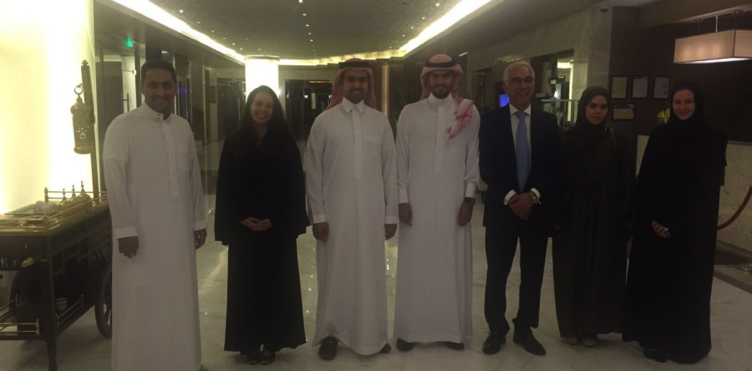 Professor Salman Rawaf hosted a gathering for Imperial MPH and PhD alumni as well as WHO CC Fellowship Alumni currently residing in Riyadh on the 13th October at the Hilton Double Tree in Riyadh. Attending the gathering was DR. Amal Hassanein, Ms Johara Al Saud, DR Turki Bin Moammer, Dr Thamer Al-Ohali, and Dr Ahmed Al Mujil.
Professor Salman Rawaf hosted a gathering for Imperial MPH and PhD alumni as well as WHO CC Fellowship Alumni currently residing in Riyadh on the 13th October at the Hilton Double Tree in Riyadh. Attending the gathering was DR. Amal Hassanein, Ms Johara Al Saud, DR Turki Bin Moammer, Dr Thamer Al-Ohali, and Dr Ahmed Al Mujil.
Visit to King Abdul Aziz University College of Medicine, Jeddah
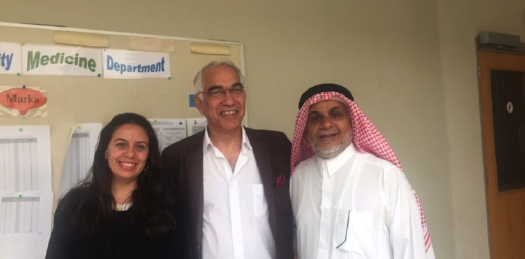
Professor Salman Rawaf and Dr Sondus Hassounah visited the King Abdul Aziz University College of Medicine in Jeddah on 9 October and were hosted by Professor Waleed Melaat to discuss cross university research collaboration.
Focus Group Discussions in Riyadh, Jeddah, Tabuk, Dammam, and Abha
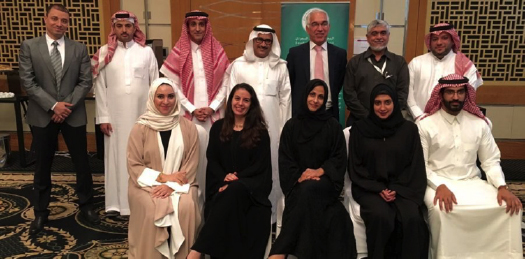 In collaboration with the Saudi Health Council (the coordinating body for the integration between the various health authorities in the Kingdom of Saudi Arabia), Professor Salman Rawaf and Dr Sondus Hassounah conducted five focus group discussions, over a period of two weeks (3 – 14 October), as part of the larger project to develop a national strategy for the development of Health Protection in the Kingdom of Saudi Arabia.
In collaboration with the Saudi Health Council (the coordinating body for the integration between the various health authorities in the Kingdom of Saudi Arabia), Professor Salman Rawaf and Dr Sondus Hassounah conducted five focus group discussions, over a period of two weeks (3 – 14 October), as part of the larger project to develop a national strategy for the development of Health Protection in the Kingdom of Saudi Arabia.
The team from Imperial College London’s WHO Collaborating Centre for Public Health Education and Training(Ms Christina Banks, Ms Alex Swaka, Mr Mohamed Al Saffar, Dr Sondus Hassounah, and Professor Salman Rawaf) have been involved in the project since its inception in early 2016 and have been working with their counter parts in Saudi Arabia on the multi-pronged project which includes a desk review of model country case studies, focus group discussions with relevant stakeholders, a nationally representative survey with 5,500 of the public, and in-depth interviews with policy makers.
The project is expected to continue till mid-2017 when the results will be shared and discussed with the Saudi Health Council and other partners in Saudi Arabia.
Mashael Al Sheikh: Systematic Review on Women and Cardiovascular Risks in KSA
Congratulations to Ms Mashael Al Sheikh, PhD student at the Imperial WHO Collaborating Centre for Public Health Education & Training, for her Systematic Review on Women and Cardiovascular Risks in the Kingdom of Saudi Arabia, which is available for viewing here.
The article has significant public health implications and more results will be available shortly on the impact on culture (beliefs, behaviour etc) on health.
Health policies and family physicians alike should aim to address some of these issues outside the disease model.
Leadership in Health- National Primary Care Services, Kuwait
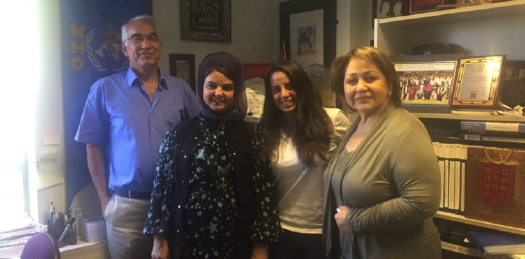 The WHO Collaborating Centre for Public Health Education and Training hosted Dr Rihab Wotayan (Managing Director for the National Primary Care Services in Kuwait) to discuss future collaboration with the centre and the department of Primary care and Public Health at Imperial. Dr Rihab and her team are interested in working with WHO CC to develop the capacity of, and train, their local health workforce, particularly in ‘Leadership in Health’. Dr Rihab is also keen to expand on the success of their recent investment in Primary Care doctors in the Kingdom and potentially send some of Kuwait’s GP trainees to take part in WHO CC 1-2 year post graduate research fellowship.
The WHO Collaborating Centre for Public Health Education and Training hosted Dr Rihab Wotayan (Managing Director for the National Primary Care Services in Kuwait) to discuss future collaboration with the centre and the department of Primary care and Public Health at Imperial. Dr Rihab and her team are interested in working with WHO CC to develop the capacity of, and train, their local health workforce, particularly in ‘Leadership in Health’. Dr Rihab is also keen to expand on the success of their recent investment in Primary Care doctors in the Kingdom and potentially send some of Kuwait’s GP trainees to take part in WHO CC 1-2 year post graduate research fellowship.
For the picture–Left to right: Professor Salman Rawaf (Director WHO CC), Dr Rihab Wotayan (Managing Director for the National Primary Care Services in Kuwait), Dr Sondus Hassounah (Teaching Fellow, WHO CC), Dr Weiam Ahmed (Honorary lecturer WHO CC).
Welcome to WHO CC Post-Graduate fellow Dr Abdulaziz Alqahtani
WHO Collaborating Centre for Public Health Education and Training was joined on 1st October by Dr Abdulaziz Alqahtani from Saudi Arabia. Dr Abdulaziz is a senior Registrar in Family Medicine at the Prince Sultan Military Medical City and will be following his postgraduate fellowship till end of August next year.
Ela Augustyniak
WHO Collaborating Centre for Public Health Education and Training
Read WHO Collaborating Centre for Public Health Education and Training in full
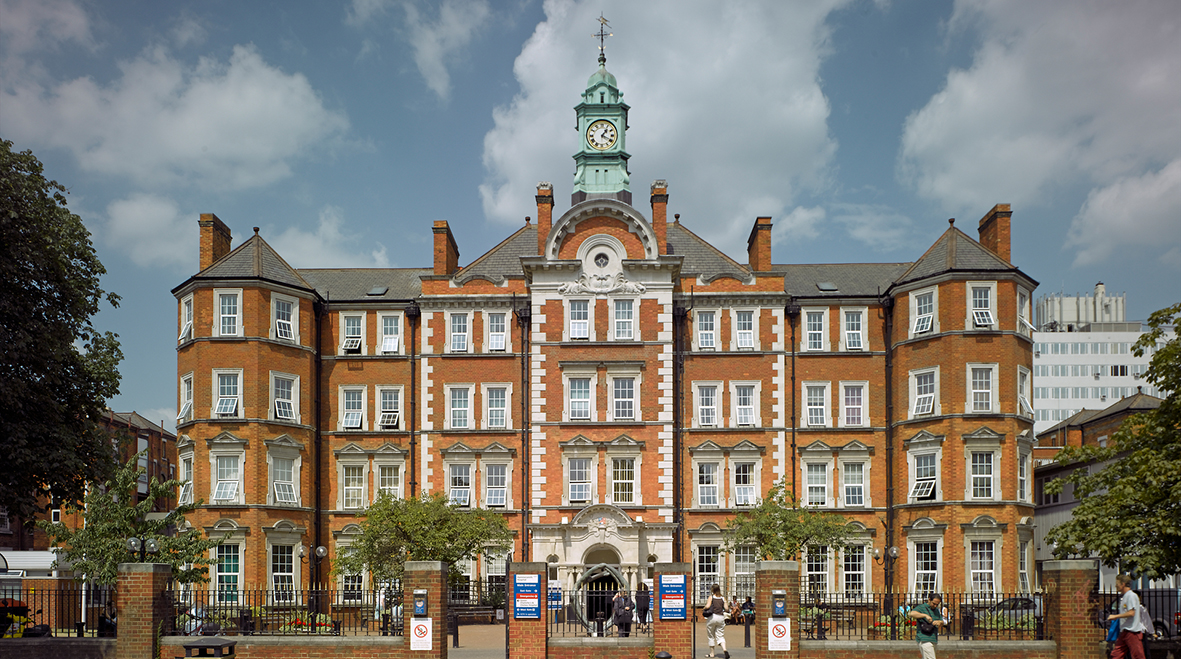
 In my first year as Vice Dean (Research) it has been a pleasure to discover the full breadth and quality of our research. We continue to build on our strong convergent science, so well demonstrated by our success with initiatives such as the UK Dementia Research Institute (UK DRI) Centre at Imperial, the newly established Health Data Research (HDR) UK, and the Future Vaccine Manufacturing Hub.
In my first year as Vice Dean (Research) it has been a pleasure to discover the full breadth and quality of our research. We continue to build on our strong convergent science, so well demonstrated by our success with initiatives such as the UK Dementia Research Institute (UK DRI) Centre at Imperial, the newly established Health Data Research (HDR) UK, and the Future Vaccine Manufacturing Hub.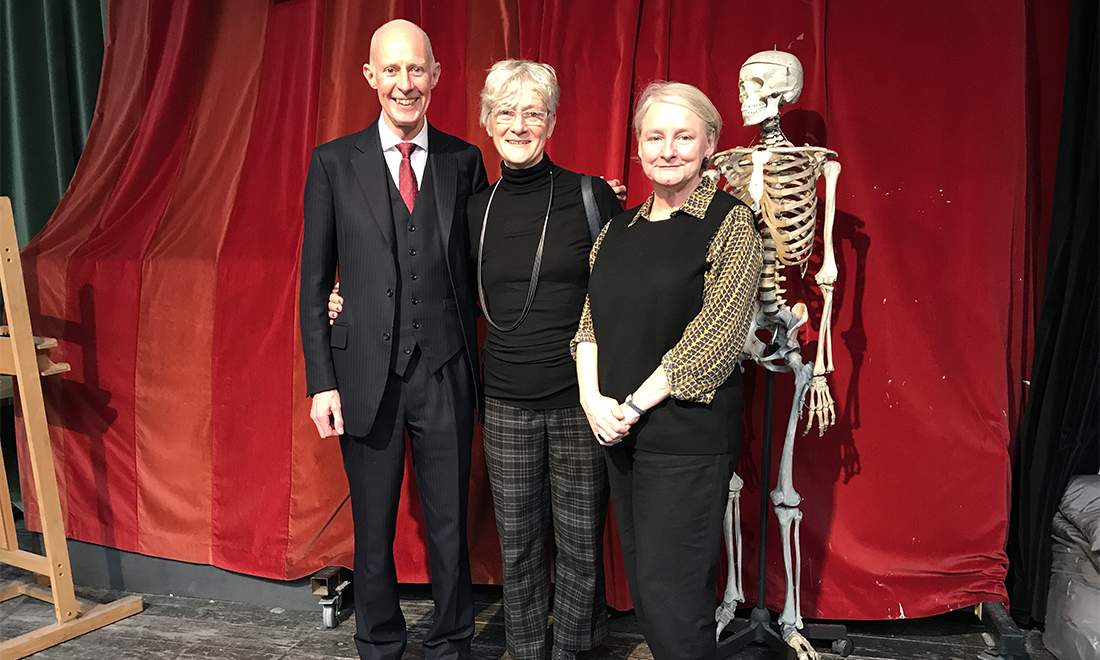
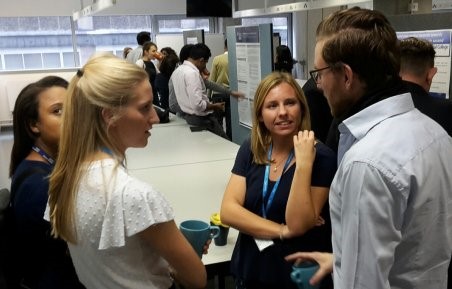


 In partnership with Zagreb Institute for the Culture of Health, WHO Collaborating Centre for Public Health Education and Training will be delivering the Advanced Leadership course in Dubrovnik, Croatia from 5-12 August 2017.
In partnership with Zagreb Institute for the Culture of Health, WHO Collaborating Centre for Public Health Education and Training will be delivering the Advanced Leadership course in Dubrovnik, Croatia from 5-12 August 2017. Volunteers will have functional magnetic resonance imaging (fMRI) brain scans, and an infusion of 2 different hormones to see how the brain responds.
Volunteers will have functional magnetic resonance imaging (fMRI) brain scans, and an infusion of 2 different hormones to see how the brain responds. On1 January 2017 MRC London Institute of Medical Sciences (LMS) became the new name of the MRC Clinical Sciences Centre. This is the start of a new chapter of investment in the LMS. After 20 years of outstanding science, we’re building our reputation for excellence in biomedical research. With a mission to build strong links between science and medicine, the LMS will continue to work in close partnership with Imperial College London at its Hammersmith Hospital campus.
On1 January 2017 MRC London Institute of Medical Sciences (LMS) became the new name of the MRC Clinical Sciences Centre. This is the start of a new chapter of investment in the LMS. After 20 years of outstanding science, we’re building our reputation for excellence in biomedical research. With a mission to build strong links between science and medicine, the LMS will continue to work in close partnership with Imperial College London at its Hammersmith Hospital campus. Amanda Fisher, Director of the MRC London Institute of Medical Sciences, has been made a Dame in the New Year’s Honours List for 2017.
Amanda Fisher, Director of the MRC London Institute of Medical Sciences, has been made a Dame in the New Year’s Honours List for 2017. 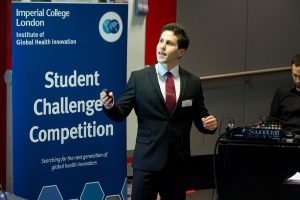 Calling all UK based students!
Calling all UK based students! 19 January, 15.30-17.30
19 January, 15.30-17.30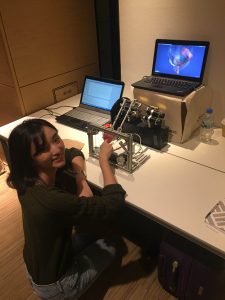 The SiMMS group within the Centre for Engagement and Simulation Science (ICCESS) presented a paper at Asia Haptics 2016 relating to their haptic Digital Rectal Examination (DRE) Trainer. Asia Haptics features a new format that consists of interactive demonstrations presented over the two day duration of the conference, with a brief explanation of the work projected live on to the main viewing screen.
The SiMMS group within the Centre for Engagement and Simulation Science (ICCESS) presented a paper at Asia Haptics 2016 relating to their haptic Digital Rectal Examination (DRE) Trainer. Asia Haptics features a new format that consists of interactive demonstrations presented over the two day duration of the conference, with a brief explanation of the work projected live on to the main viewing screen.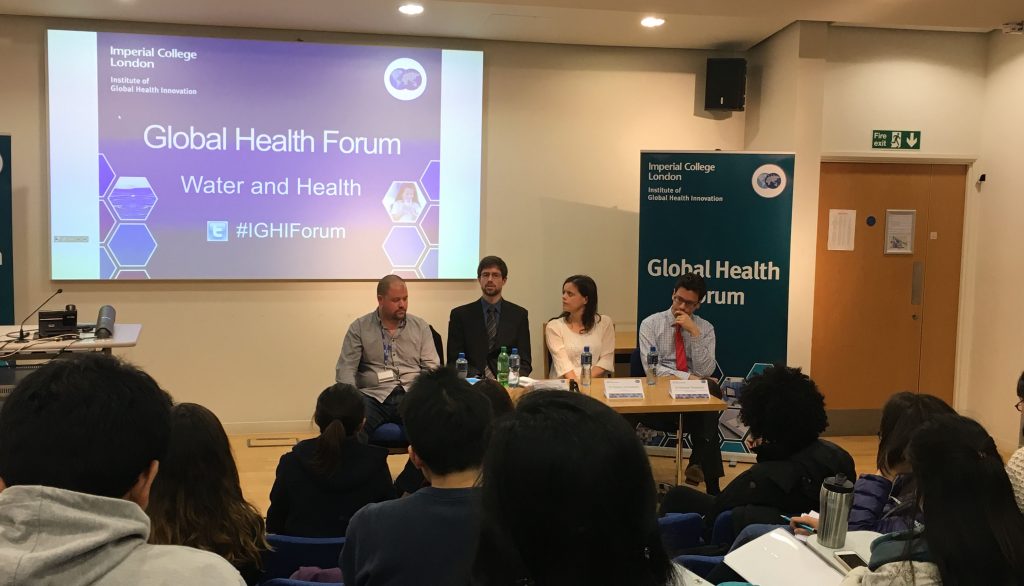
 Professor Salman Rawaf hosted a gathering for Imperial MPH and PhD alumni as well as WHO CC Fellowship Alumni currently residing in Riyadh on the 13th October at the Hilton Double Tree in Riyadh. Attending the gathering was DR. Amal Hassanein, Ms Johara Al Saud, DR Turki Bin Moammer, Dr Thamer Al-Ohali, and Dr Ahmed Al Mujil.
Professor Salman Rawaf hosted a gathering for Imperial MPH and PhD alumni as well as WHO CC Fellowship Alumni currently residing in Riyadh on the 13th October at the Hilton Double Tree in Riyadh. Attending the gathering was DR. Amal Hassanein, Ms Johara Al Saud, DR Turki Bin Moammer, Dr Thamer Al-Ohali, and Dr Ahmed Al Mujil.
 In collaboration with the Saudi Health Council (the coordinating body for the integration between the various health authorities in the Kingdom of Saudi Arabia), Professor Salman Rawaf and Dr Sondus Hassounah conducted five focus group discussions, over a period of two weeks (3 – 14 October), as part of the larger project to develop a national strategy for the development of Health Protection in the Kingdom of Saudi Arabia.
In collaboration with the Saudi Health Council (the coordinating body for the integration between the various health authorities in the Kingdom of Saudi Arabia), Professor Salman Rawaf and Dr Sondus Hassounah conducted five focus group discussions, over a period of two weeks (3 – 14 October), as part of the larger project to develop a national strategy for the development of Health Protection in the Kingdom of Saudi Arabia. The WHO Collaborating Centre for Public Health Education and Training hosted Dr Rihab Wotayan (Managing Director for the National Primary Care Services in Kuwait) to discuss future collaboration with the centre and the department of Primary care and Public Health at Imperial. Dr Rihab and her team are interested in working with WHO CC to develop the capacity of, and train, their local health workforce, particularly in ‘Leadership in Health’. Dr Rihab is also keen to expand on the success of their recent investment in Primary Care doctors in the Kingdom and potentially send some of Kuwait’s GP trainees to take part in WHO CC 1-2 year post graduate research fellowship.
The WHO Collaborating Centre for Public Health Education and Training hosted Dr Rihab Wotayan (Managing Director for the National Primary Care Services in Kuwait) to discuss future collaboration with the centre and the department of Primary care and Public Health at Imperial. Dr Rihab and her team are interested in working with WHO CC to develop the capacity of, and train, their local health workforce, particularly in ‘Leadership in Health’. Dr Rihab is also keen to expand on the success of their recent investment in Primary Care doctors in the Kingdom and potentially send some of Kuwait’s GP trainees to take part in WHO CC 1-2 year post graduate research fellowship.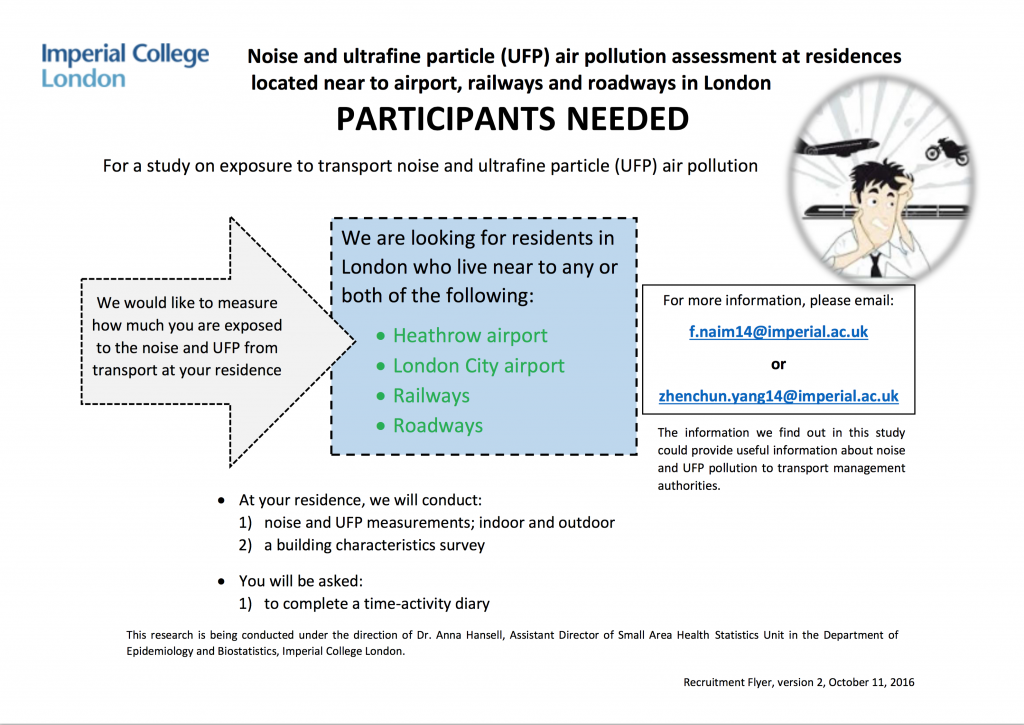
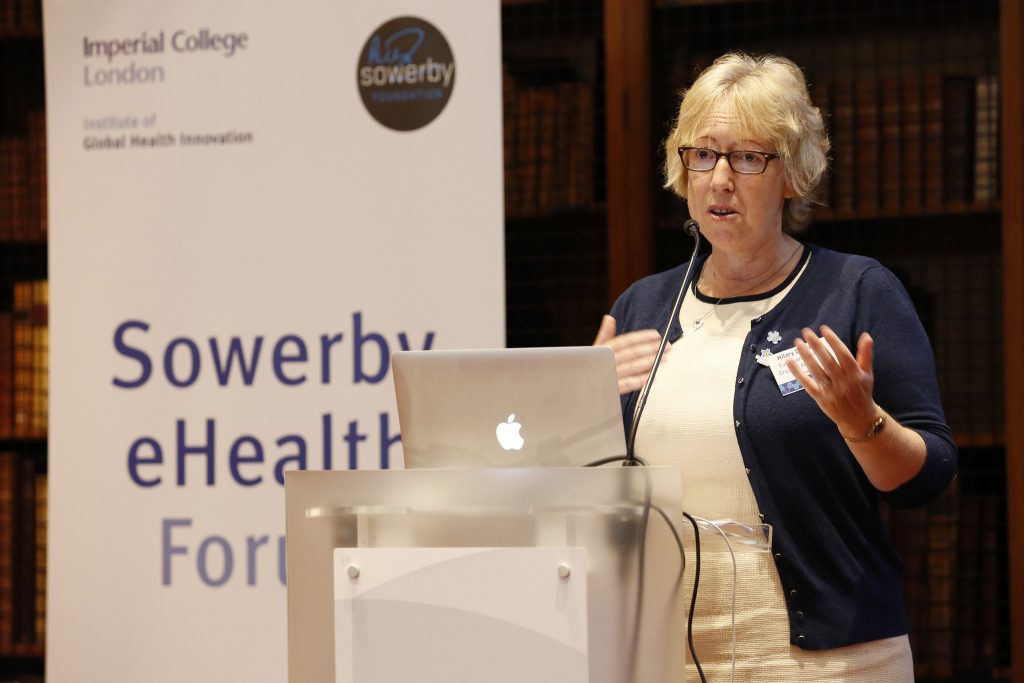

 The Robert Steiner MRI unit, within the MRC Clinical Sciences Centre, is looking for healthy volunteers from west African descent aged 18-80 with no heart-related health problems. The study aims to develop an atlas of the human heart to help scientists to determine the effect of different DNA and genes on heart shape and function.
The Robert Steiner MRI unit, within the MRC Clinical Sciences Centre, is looking for healthy volunteers from west African descent aged 18-80 with no heart-related health problems. The study aims to develop an atlas of the human heart to help scientists to determine the effect of different DNA and genes on heart shape and function.